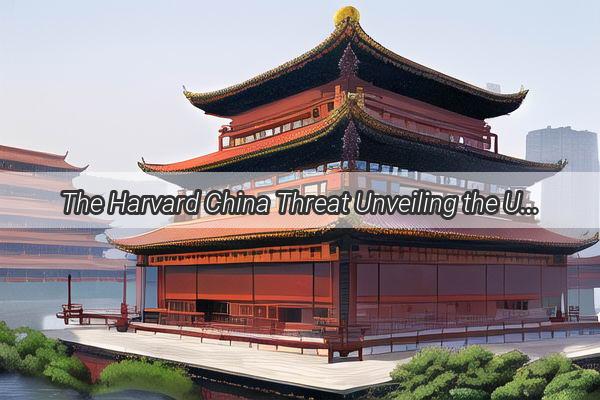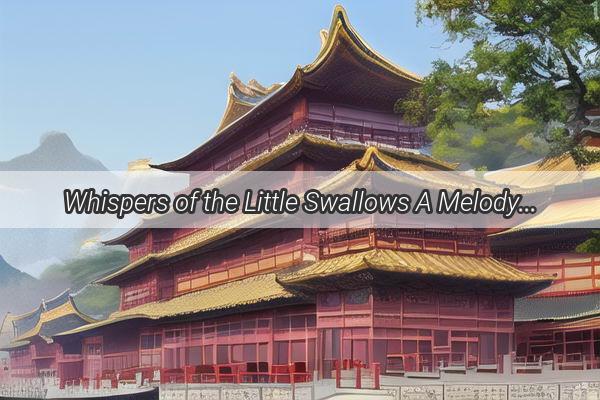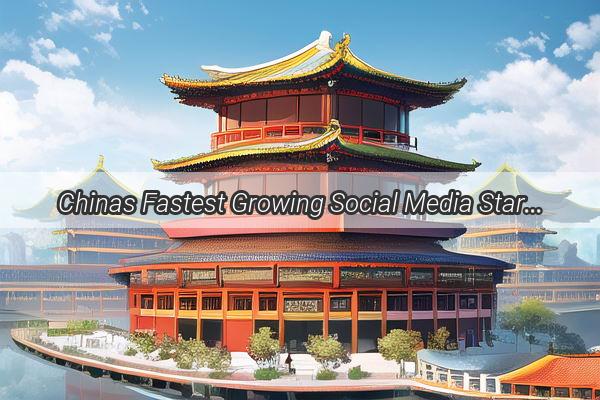The Harvard China Threat Unveiling the Underlying Truths Behind the Academic Front
---
The Harvard China Threat: Unveiling the Underlying Truths Behind the Academic Front!
In a world dominated by the relentless pursuit of academic excellence, Harvard University stands as a beacon of education and intellectual prowess. However, amidst its prestigious reputation, whispers of a so-called China threat have been increasingly circulating. This article delves into the heart of this controversy, aiming to shed light on the underlying truths that have sparked such concern.
At its core, the Harvard China threat revolves around allegations of undue influence by the Chinese government on the esteemed institution. Critics argue that this influence is seeping into the academic fabric of Harvard, potentially compromising its independence and integrity. But what is the truth behind these accusations?
To understand the Harvard China threat, we must first acknowledge the significant role China plays in the global academic landscape. With its rapid economic growth and increasing investment in education, China has become a major player in international research and development. This has naturally led to an influx of Chinese students and scholars at institutions like Harvard, raising questions about the potential for cultural and political interference.
One of the most contentious issues surrounding the Harvard China threat is the influx of Chinese students. While many of these students bring valuable perspectives and diverse viewpoints to the Harvard community, some critics argue that their presence is merely a smokescreen for political influence. They fear that these students may be acting as spies, tasked with gathering sensitive information and promoting Chinese interests within the university.

However, it is crucial to recognize that the vast majority of Chinese students at Harvard are genuine and dedicated to their academic pursuits. The notion that they are all spies is both unfounded and unfair. Instead, it is essential to focus on the underlying reasons behind the allegations and explore the potential risks associated with international student exchange programs.
Another aspect of the Harvard China threat centers on the establishment of Confucius Institutes on campus. These language and cultural centers, funded by the Chinese government, have sparked controversy due to concerns about their political agenda. Critics argue that these institutes promote a one-sided view of China and may be used to spread propaganda or suppress dissenting opinions.
While it is important to remain vigilant against any potential misuse of Confucius Institutes, it is equally crucial to recognize their value in fostering cultural exchange and promoting mutual understanding. By providing students with access to Chinese language and culture, these institutes can contribute to a more informed and interconnected global community.
Moreover, the Harvard China threat cannot be solely attributed to external influences. It is also a reflection of internal challenges faced by the university in maintaining its academic independence and integrity. As an institution with a long history of social responsibility, Harvard must ensure that its actions align with its core values and principles.
To address these concerns, Harvard has taken several steps to mitigate the potential risks associated with the China threat. The university has implemented stricter guidelines for international partnerships and collaborations, ensuring that all agreements align with its academic values. Additionally, Harvard has established a task force to monitor and investigate any potential breaches of academic integrity.
In conclusion, the Harvard China threat is a complex issue that requires a nuanced understanding of the underlying factors at play. While concerns about undue influence are valid, it is essential to avoid generalizing and stigmatizing an entire population of students and scholars. By fostering open dialogue, promoting transparency, and upholding its core values, Harvard can continue to be a beacon of academic excellence in an increasingly interconnected world.









